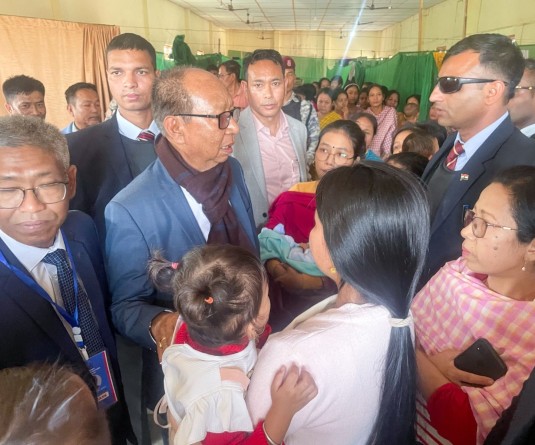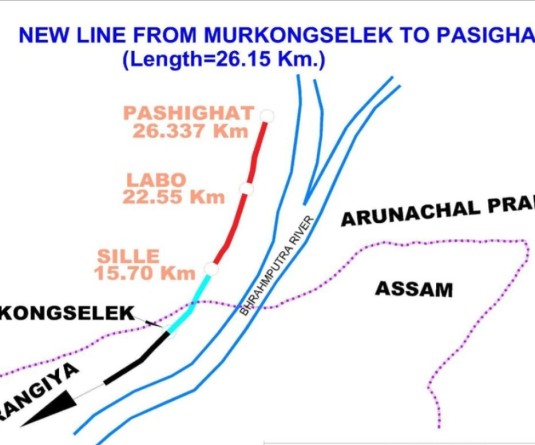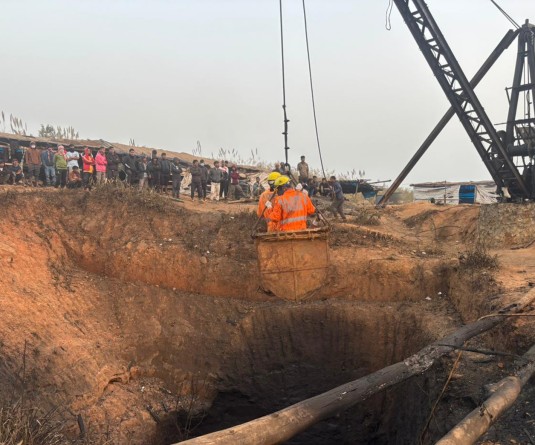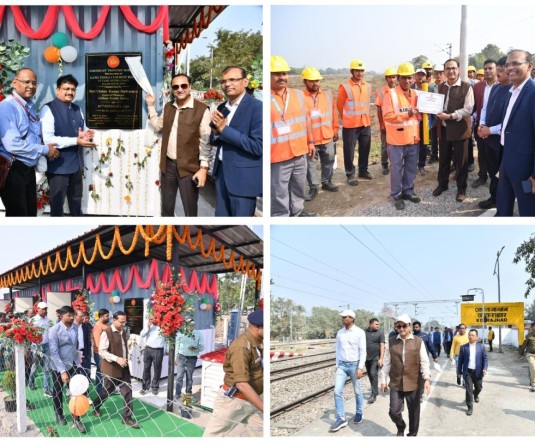
US Consulate Kolkata and Asian Confluence host dialogue
Shillong, August 18 (MExN): A conclave organized by thinktank Asian Confluence in collaboration with the US Consulate General Kolkata was held with the theme, ‘The North Eastern Region of India and the neighbourhood as a strategic connector for the Indo Pacific region,’ at the Asian Confluence headquarter in Shillong on August 18.
The conclave witnessed a galaxy of speakers speaking on three themes- trade and connectivity; climate and ecology; and migration and peace building, stated a press release received here.
In her opening remarks, Riva Ganguly Das, Former Secretary (East), Ministry of External Affairs, Government of India and Member Governing Council, Asian Confluence who also served as a high commissioner of Bangladesh and Director General ICCR, said, “NER is a vital link between two very important pillars of Indian Foreign Policy: Neighborhood First and Act East. NER connects us to our neighbours and to one of the most economically dynamic and politically significant geographies in the world – the ASEAN and the Indo Pacific.”
Md Shahidul Haque, former Bangladeshi foreign secretary in his keynote address made a detailed presentation on the Indo-Pacific and talked about the Bangladesh point of view.
Margaret MacLeod, First Secretary, Public Diplomacy Section, U.S. Embassy New Delhi said “We seek to deepen our role in the Indo-Pacific, building shared capacity with our partners to address our shared challenges. I look forward to learning what opportunities the people of North East India see for cooperation to respond to regional and global challenges”.
Adrian J. Pratt, Public Affairs Officer, U.S. Consulate General Kolkata said “In keeping with the larger regional goals of integration and development, it is very important to create local stakes to sustain that over a long period of time- in building market connectivity, human and natural capital, diversity, and cultural richness. In the post-pandemic world, leveraging these factors could play an important role in the growing QUAD partnership in the Indo-Pacific narrative.”
Sabyasachi Dutta, Executive Director, Asian Confluence said “It is really important, for us to connect the dots between the strategic importance of the Northeast region and the evolving Indo Pacific in global geopolitics. It’s a pleasure to collaborate with the US consulate to put together this timely dialogue as a part of larger initiative to connect Indo Pacific at people level”. Secretary, Northern Eastern Council, K Moses Chalai, also delivered opening remarks at the inaugural.
A detailed presentation on connectivity and the Indo Pacific Economic Framework in the region was made by noted expert Dr Prabir De, Professor and Coordinator, ASEAN- India Centre, RIS, New Delhi.
Senior policymakers and eminent scholars from the region like Samudragupta Kashyap, State Information Commissioner, Government of Assam, Ch. Ibohal Meitei, Professor, Manipur Institute of Management Studies, Manipur University, Monish Singh, Regional Director, ICCR, Nandini Bhattacharya Panda, distinguished fellow, Asian Confluence, Batskhem Myrboh, Asst. Prof. Department of Political Science, Synod College, Saswati Choudhury, Director In charge, Amiyo Kumar Das Institute, and Shah Md. Tanvir Monsur, Assistant High Commissioner of Bangladesh, Guwahati shared their valuable insights.
The interactive dialogue which was well attended by students and faculty from nearby colleges ended with a cultural program hosted by ICCR and Asian Confluence, highlighting the role of culture as a medium of dialogue.
Background:
The strategic pursuit of a free and open Indo Pacific anchored in the conceptualization of a prosperous region spanning the two oceans, based on the shared principles of democracy and freedom has made space for several avenues of cooperation within nations of the region. Exploring and nurturing the cultural, historical and social threads that tie the region is an important component towards fostering people to people connectivity, trade, trust and further cooperation to address common issues between the diverse nations. The region comprising North-eastern states of India holds an important position in this context. As a land-bridge between South and Southeast Asia with proximity to the Bay of Bengal, the region has been an anthropological and cultural diversity hotspot, witness to several migrations and partitions of peoples. The region is also a biodiversity hotspot with rich reservoir of water, forests and other natural resources having an important role to play in addressing climate change in Eastern South Asia and the Bay of Bengal region. Today, it lies at the intersection of India’s “Act East Policy”, “Neighborhood First Policy” and the larger shared Indo Pacific vision. The Policy Roundtable aims to explore how the historical, commercial and cultural ties between Northeast India and its neighbouring countries can enable greater connectivity in the Indo- Pacific region.
The roundtable will be conducted on the following four lenses for discussion:
• The Strategic Location of North-east India in the context of the evolving Indo Pacific
• Trade and Commercial Connectivity within the region and its neighbours
• Cooperation towards adapting to Climate Change
• The region as a witness of several migrations
The conclave informed the content and contours of a follow up conclave which proposes to bring together policymakers, thought leaders, experts, performers, civil society and media from the Indo-Pacific countries with an aim to leverage culture as a tool to trigger policy discussions. Towards the goal of a free, open, prosperous, and inclusive Indo-Pacific region, it hopes to create an interface between art, culture and policy space.






